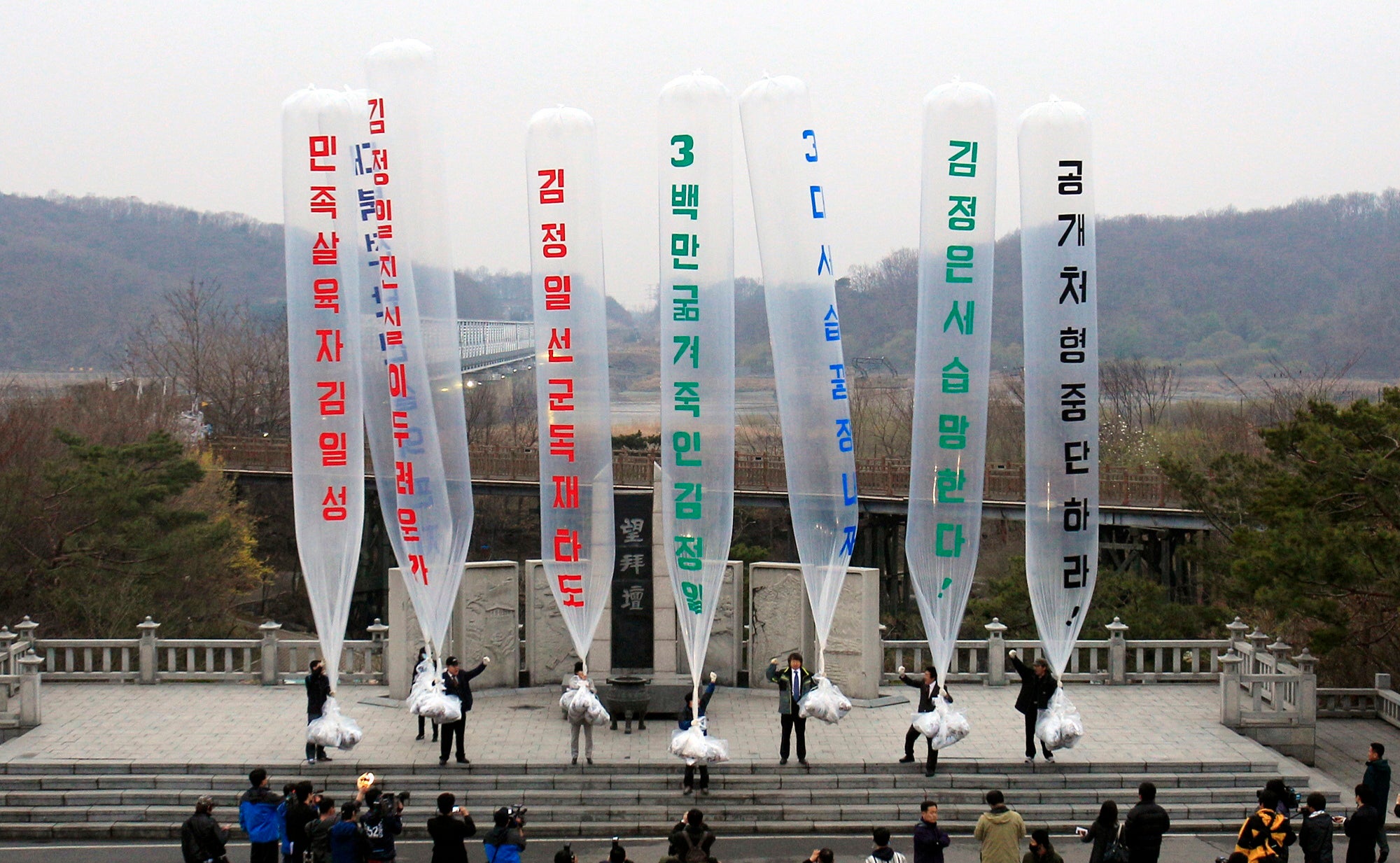North Korea threatens to respond to anti-Pyongyang propaganda leaflets with a 'shower of shells'
North Korea has criticized rival South Korea for removing a law that banned private activists from sending anti-Pyongyang propaganda leaflets to the North, insisting that such activities amount to psychological warfare and threatening to respond with a “shower of shells.”

North Korea on Wednesday criticized rival South Korea for removing a law that banned private activists from sending anti-Pyongyang propaganda leaflets to the North, insisting that such activities amount to psychological warfare and threatening to respond with a “shower of shells.”
The statement published by North Korea’s official Korean Central News Agency was the first time state media commented on the decision by South Korea’s Constitutional Court in September to invalidate a 2020 law that criminalized leafletting. The decision was based on concerns that it excessively restricted free speech.
The ruling came in response to a complaint filed by North Korean defector-activists in the South. They included Park Sang-hak, who has been a frequent target of North Korean government anger for his yearslong campaign of flying leaflets across the border with giant balloons.
North Korea is extremely sensitive about any outside attempt to undermine leadership of authoritarian ruler Kim Jong Un as he maintains tight control over the country’s 26 million people while severely restricting their access to foreign news.
The law, crafted by the previous liberal government in Seoul that pursued inter-Korean engagement, was passed six months after the North expressed its frustration over the leaflets by blowing up an inter-Korean liaison office in the North Korean border town of Kaesong in June 2020.
Tensions between the Koreas are at their highest point years as the pace of both Kim’s weapons tests and the South Korea’s combined military exercises with the United States have intensified in a tit-for-tat cycle.
In comments attributed to a political commentator, the KCNA warned that the North in the current state of tensions would consider leafletting as a “high-level psychological warfare” and even a “pre-emptive attack conducted before a start of war.”
“Under the present situation where a spark may lead to explosion, there is no guarantee that such military conflicts as in Europe and the Middle East would not break out on the Korean Peninsula,” the KCNA said, apparently referring to Russia’s war on Ukraine and the violence in Israel and Gaza.
The agency claimed that future leafletting campaigns could trigger an unprecedented response from North Korea’s military, which stands ready to “pour a shower of shells” toward the sites where the leaflets are launched as well as the “bulwark of the region of (south) Korean puppets.”
While North Korea often makes bizarre threats that aren’t carried out, the comments still reflected the animosity between the rival Koreas amid a prolonged freeze in diplomacy.
Aside from blowing up the liaison office, the North in 2022 blamed its COVID-19 outbreak on balloons flown from South Korea, a highly questionable claim that appeared to be an attempt to hold its rival responsible amid growing tensions over its nuclear weapons program.
In 2014, North Korea also fired at propaganda balloons flying toward its territory. South Korea then returned fire, but there were no casualties.
Park and other defectors from the North for years have used huge helium-filled balloons to launch leaflets criticizing Kim’s leadership, his nuclear weapons ambitions and the country’s dismal human rights record. The leaflets are often packaged with U.S. dollar bills. and USB sticks containing information about world news.
In his latest launch on Sept. 20, Park said he flew 20 balloons carrying 200,000 leaflets and 1,000 USB sticks from the South Korean border island of Ganghwa.
Bookmark popover
Removed from bookmarks